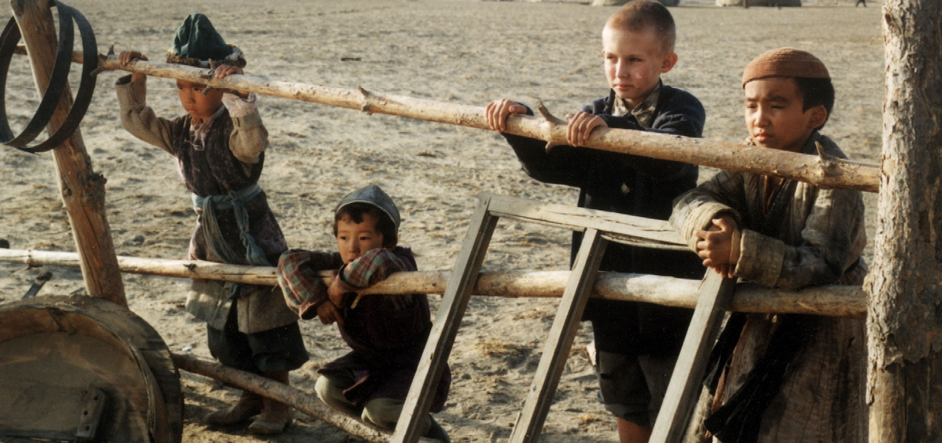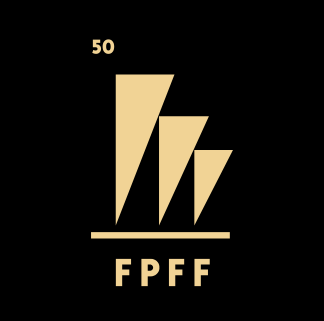A special screening of “All That Really Matters” at the 40th GFF!

The 40th Gdynia Film Festival will host the official premiere of the
digitally reconstructed version of “All That Really Matters” by Robert
Gliński, the 1992 Golden Lions Prizewinner. A special screening of the
film, connected with a meeting with the filmmakers, will be held on
Thursday, 17th September 2015 at 4.00 p.m. in the Gdynia Multikino cinema.
The film is considered as one of the most important achievements of the Polish cinematography of the 90.’s. Besides the Golden Lions, the film was awarded at the Polish Feature Film Festival for the photography (Jarosław Szoda), for the sound (Krzysztof Jastrząb, Marek Kuczyński, Urszula Ziarkiewicz) as well as the journalists’ prize. The film casts outstanding Polish actors: Ewa Skibińska, Krzysztof Globisz, Adam Siemion, Grażyna Barszczewska, Bogusław Linda, Natalia Kolakanowa, Oleg Czebotariew. It was also the Polish nominee for the Oscar award. It is the first independent professional Polish production. Its producer, Marek Nowowiejski, raised 65% of the budget outside cinematography, which was a pioneer task to accomplish in the beginning of the 90.’s.
“All That Really Matters” is a story of the love of Ola and Aleksander Wat. In the 30.’s, Wat, the famous Polish futuristic poet, belonged to the artistic bohema sympathising with communism. His wife Ola, one of the most beautiful ladies of the pre-war Warsaw, was the pride of the literary circles. The World War II breaks out. The Wat family together with their little son run away from the Nazi-occupied Warsaw to the Eastern territories of Poland. They are afraid of Germans as they are Jews. Here, the Soviet occupation surprises them. Wat is arrested and Ola with their son are expatriated to the midst of Russia, to Kazakhstan, where they do field work together with other Polish expatriates. As a Jew and the wife of a communist, Ola is boycotted by Poles. At the same time, she struggles with the obsessive love of a Soviet officer. She desperately fights for the survival of hers and her son. She firmly believes that one day she will meet her husband again.
“The film was awarded in Gdynia by a very interesting jury,” Robert Gliński recollects. “Leaving the films aside, the jury was the most interesting then, composed of, among others, Kazimierz Kutz, father Józef Tischner, Adam Michnik… Back then, discussions on films were public. What they said was very interesting. We could listen to what they think of our films… In my opinion, the film has not grown old because it is a historical film. In the historical film, the protagonist faces a specific drama situation, a choice, a conflict, a decision as to where to go. Such a film is contemporary by nature.”
“Gliński has made an important film, a first independent Polish production. His film touched upon the then-untouched topics, it suggested the way cinematography should take on,” the then cinematography chairman Waldemar Dąbrowski mentioned in the book “And the ship goes on… 30 years of the Polish Feature Film Festival Gdańsk – Gdynia”.
The film was digitally reconstructed by the ORKA company. “Working on the Polish cinematography is always a great responsibility. In ORKA, we try to be a conscientious partner for the filmmakers, enjoying the possibility of contributing to the Polish culture heritage,” says Magdalena Zimecka, the Managing Director of ORKA. “Part of the work is automated. However, the majority of the corruptions is manually deleted frame by frame. The cleared-up image is then corrected in terms of colour grading. The colour specialist Olek Winecki worked with the film operator Jarek Szoda. While grading, the specialists can create a new look of the film, give it a colour polish so that it is attractive to the contemporary viewer. In this case, the operator decided to preserve the existing character of the image, modifying the framing only.”
“It is a pleasure to come back to Gdynia after all those years with the film that won the Festival. Thanks to the Polish Filmmakers Association which allots funds to it as well as to the talented people of ORKA who digitally reconstructed it, the film is even better,” says Marek Nowowiejski, the film producer. “Besides the crew, Andrzej Wat will come to Gdynia. I am glad that we will all meet again.”
“I think that “All That Really Matters” today is even more topical than it was at the moment of its premiere,” says Michał Oleszczyk, the Artistic Director of the Festival. “When Robert Gliński got down to the topic in 1992, it was absolutely pioneer effort: a big, ambitious film on the topics that had been completely forbidden and highly controversial in the Polish People’s Republic. Brilliant directing and cast genuinely breathed life into the story of the Wat family, and the new reconstruction only proves the quality and allows for enjoying it fully.”
What is very interesting is the story of making the film. The screenwriter Dżamila Ankiewicz met her protagonist, Ola Wat, in Paris in the midst of the 80.’s. Before, she had already known the famous book “My age”, the conversations of Czesław Miłosz with Aleksander Wat issued in 1983 in Warsaw by the underground publisher KRĄG. When a chance popped up to meet Ola Wat in Paris, she jumped at it immediately. The meeting evolved into a lasting acquaintance. In 1984, Ola’s memoirs entitled “All That Really Matters” were issued by PULS Publications. “I took “All That Really Matters” as a shocking documentary about suffering, love and attachment. The honesty of the author, the personal tone of the narration, the drama of the experiences, the importance of the events recalled – all that made me think of the book as of a brilliant material for a film,” says Dżamila Ankiewicz. Right away, she shared her feelings with the author, who pondered over it for a moment and said: We will see. Maybe when the communism falls?
In 1989, Ola Wat came to Warsaw for the first time since she left it thirty two years ago. The political landscape had changed. “She told me with a smile: You know, if the communism is falling, it is high time you thought of the film project,” the screenwriter says. “It was a joke which nevertheless initiated everything. I wanted to create an adaptation that would be close to Ola’s book and at the same time well adjusted to the film narration requirements. Getting down to working on the screenplay, I assumed a dramatic whole of the story: it will be a story of one great anticipation which fulfils in the end, with things on the way that in turns make the final destination closer and further. And I think this worked on the screen.”


